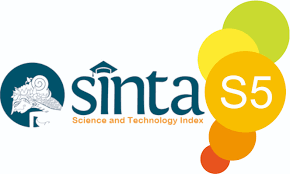Peran Pengembangan Soft Skill Karyawan Dalam Meningkatkan Kualitas Pelayanan Pada Food And Beverage Department Raz Hotel And Convention Medan
 Abstract views: 426
,
Abstract views: 426
,
 pdf downloads: 237
pdf downloads: 237
Abstract
The major goal of service businesses is to deliver the best services possible to customers, with an emphasis on service and customer happiness. integrating all the operations that will impact customers and make money through services that put the demands of the client first. Service quality is a significant factor in accomplishing that objective. enhancing the performance of workers' or service providers' ideal roles within the business. It is crucial to think about the business or the strategy for enhancing employees' skills or personal growth. This study aims to determine the extent to which a person's soft talents and hard abilities may help them give better services, particularly for service providers. Efforts to build the soft skill of a service provider are equally vital to learning the items that fall under the area of soft skills. The company's responsibility is to uphold high service quality and apply the soft skill needs. This research employs a quantitative research methodology, where the source of the data is a numerical value. The goal of this study is to increase service quality by focusing on soft skill development. Based on the coefficient of determination, the outcome indicated that the soft skill had an impact of 88.2% on the Food and Beverage Department's ability to provide quality service. This indicates that soft skills have a significant impact on enhancing service quality.
Downloads
References
Hasibuan, Malayu. 2002. Manajemen Sumber Daya Manusia. Jakarta: Bumi Aksara.
Lupiyoadi, Rambat. 2001. Manajemen Pemasaran Jasa. Jakarta: Salemba Empat.
Nogi, Hassel. 2005. Manajemen Publik. Jakarta: Grasindo.
Rahmayanty, Nina. 2010. Manajemen Pelayanan Prima. Yogyakarta: Graha Ilmu.
Sugiyono.(2012). Statistika untuk Penelitian. Bandung : Alfabeta.
Copyright (c) 2023 Mhd Daud Siregar Daud

This work is licensed under a Creative Commons Attribution-ShareAlike 4.0 International License.
Authors who publish with this journal agree to the following terms:
- The author (s) keeps copyright on any article.
- The author grants the journal, right of first publication with the work simultaneously licensed under a Creative Commons Attribution License that allows others to share the work with an acknowledgement of the work’s authorship and initial publication in this journal.
- Authors can enter separate, additional contractual arrangements for the non-exclusive distribution of the journal’s published version of the work (e.g., post it to an institutional repository or publish it in a book), with an acknowledgement of its initial publication in this journal.
- Authors are permitted and encouraged to post their work online (e.g., in institutional repositories or on their website) prior to and during the submission process, as it can lead to productive exchanges, as well as earlier and greater citation of published work.
- We distributed the article, and any associated published material under the Creative Commons Attribution-Share alike 4.0 International License




